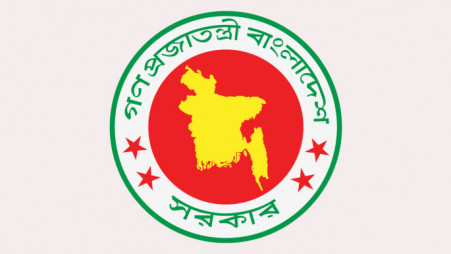Most 2024 DC conference decisions unimplemented
This year’s DC conference will be held at the Osmani Memorial Auditorium in the capital from 16 to 18 February

The implementation rate of decisions from the 2024 deputy commissioner conference has dropped year-on-year due to "philosophical differences" between the Hasina-led Awami League administration and the current interim government.
Cabinet Secretary Sheikh Abdur Rashid highlighted this in the progress report, which noted that some proposals aligned with the previous government's philosophy were not implemented after the interim government took over following the July-August uprising.
This year's DC conference will be held at the Osmani Memorial Auditorium in the capital from 16 to 18 February. The Cabinet Division received 1,245 proposals from divisional commissioners and DCs, with 353 included in the working paper for discussion.
Many proposals were excluded due to disagreements between ministries or being previously presented. The conference will feature 34 working sessions, starting with an inauguration by Chief Adviser Muhammad Yunus at 10:30 am on 16 February at Shapla Hall, followed by an open discussion, a meeting with the Bangladesh Administrative Service Association, and a dinner.
On the second day, the DCs will pay a courtesy call on the chief justice at the Supreme Court but will not visit the president.
According to the Cabinet Division's progress report, 381 decisions were made at last year's DC conference, including 119 short-term, 192 medium-term, and 70 long-term, with 64% of short-term, 40% of medium-term, and 36% of long-term decisions implemented.
The report reveals that 46% of the 2024 DC conference decisions have been implemented, compared to 76% in 2023, 86% in 2022, 88% in 2019, and 93% in 2018. The DC conference was not held in 2020 and 2021 due to the Covid-19 pandemic.
A Cabinet Division official said while the implementation rate of DC conference decisions is typically above 75%, it has been low due to the government change.
The report did not specify which proposals were dropped, but officials attributed the 30% decrease in the implementation rate to instability in public administration after the government change.
Many decisions from the previous government were not implemented, and delays were caused by the replacement of deputy commissioners, vacancies, and multiple ministries being overseen by a single adviser, he added.
Furthermore, deteriorating law and order, absentee contractors, dysfunctional local government institutions, and changes in the local political environment hindered decision implementation.
The official explained that these decisions aim to improve public services, utilise local potential, and address issues, and their failure to be implemented hampers development.
Cabinet Division sources noted that progress reports from implementing ministries are collected by the 10th of each month to monitor implementation.
Additionally, three workshops held last year moved some short-term decisions to the medium- and long-term categories for easier implementation.
Unimplemented decisions
At last year's DC conference, several proposals were made, but many remain unimplemented. A proposal to amend the government hat-bazar lease policy and increase leased income from 5% to 15% for Union Parishad development led to the formation of a nine-member committee.
The proposal was later moved to the mid-term for easier implementation, but the online hat-bazar lease proposal was not implemented.
A decision to register Qawmi Madrasas was hindered by a lack of cooperation from madrasa board representatives. The renovation of the Mujibnagar Memorial Complex's historical structures and sculptures was delayed pending a report from the DC.
Proposals to set electricity bills for fish farms at agricultural rates and install lightning protection shelters were accepted but not acted upon. Similarly, decisions to include non-registered cultural, sports, and libraries in the TR policy and set brick-burning licence fees at Tk50,000 were not implemented.
The proposal to declare the Padma Bridge and Shimulia river port as tourist destinations was moved to the long-term category, while initiatives for a working women's hostel with daycare facilities and an old age allowance for the elderly remained unimplemented.



 Keep updated, follow The Business Standard's Google news channel
Keep updated, follow The Business Standard's Google news channel















